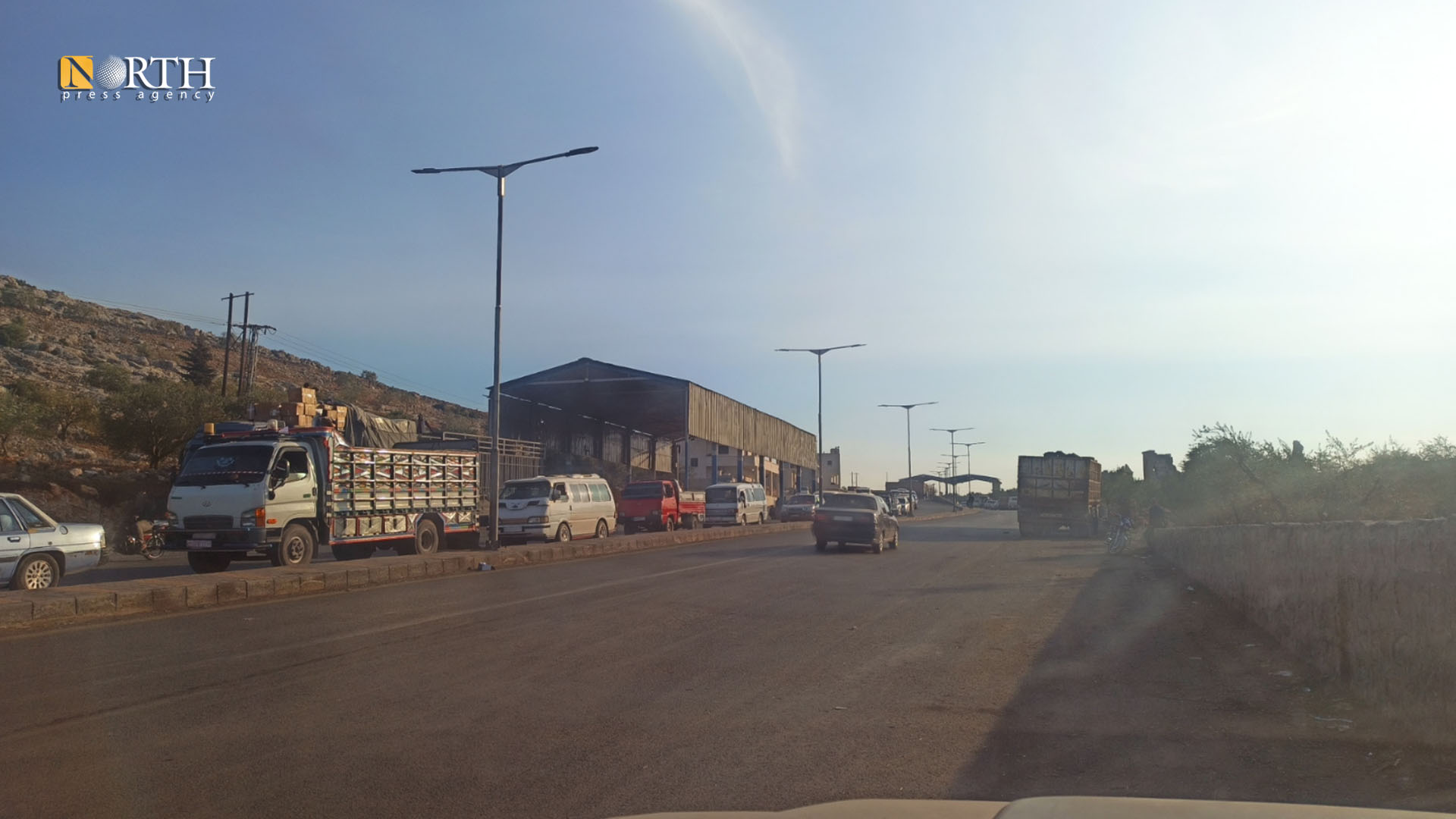IDLIB, Syria (North Press) – Hayat Tahrir al-Sham (HTS, formerly al-Nusra Front) exploited the relative calm in the military frontlines this year to tighten its control over all sectors including economy, media and politics through suppression and arrest, according to residents and activists in Idlib, northwest Syria.
The HTS, through threatening, arresting and suppressing people by force of arms, tightened the screw on those who reject it and worked to improve its public image in front the international community and particularly the UN.
The HTS runs Idlib area and parts of the countryside of Aleppo after it has expelled other Turkish-backed armed factions.
In mid-2018 the US blacklisted the HTS led by Abu Mohammad al-Julani, and all the affiliated factions and announced a ten million US dollar award in turn for information that contributes to arrest him.
During 2021, Idlib witnessed many incidents, the major of which were public protests, clashes between HTS and other jihadist groups in the countryside of Idlib and Latakia.
In July, the HTS launched a military operation against jihadist groups including Junud al-Sham headed by Muslim al-Shishani, and Abu Fatima al-Turki group in the countryside of Latakia and it took control over sites of those groups after fierce battles forcing them to abandon their weapons.
Before launching the military operations against sites of the jihadist groups, the HTS arrested dozens of leaders of al-Qaeda-affiliated Hurras al-Din (Guardians of Religion Organization) in Idlib.
Arbitrary arrest
The Syrian Network for Human Rights (SNHR) documented 121 arrests and detentions including a child and more than 17 journalists and media employees, the member of SNHR, Nour al-Khatib, told North Press.
Activists and employees of humanitarian organizations were also arrested for expressing their views that criticized the HTS policy followed in areas held by it or over other charges as working in favor of the Syrian Democratic Forces (SDF) or the regime, according to al-Khatib.
The HTS arrested people through either raiding houses and breaking doors, kidnapping people on streets, on checkpoints, or summoning them for investigations, according to al-Khatib.
The SNHR recorded arrests took place on checkpoints of the HTS charging them of breaking their fast during the month of Ramadan [Muslim’s fasting month].
The SNHR documented summon processes of media activists by the media directorate of the Salvation Government (HTS civil wing) due to posts on their sites on social media on the occasion of World Press Freedom Day.
Additionally, the SNHR documented arrests carried out within the IDPs camps north of Idlib and were accompanied by intensive firing and hitting civilians including women, al-Khatib noted.
Arrests by the HTS were documented in the village of Kafraya, northeast of Idlib, after people took to streets against the Turkistan Islamic Party that told IDPs in the village to abandon their houses in order to seize them, according to the SNHR.
“Not better than the regime”
Through its security apparatuses, HTS is tightening the screw on residents by imposing its provisions, thoughts, religious beliefs in addition to the intervention of its militants in the details of people’s life similar to the Islamic State Organization (ISIS) practices, according to residents of Idlib.
Early in 2021, Idlib witnessed demonstrations calling for toppling the HTS and its leader Abu Mohammad al-Julani.
Meanwhile, the HTS bans any attempt to establish parties, civil or public or union gatherings fearing the emergence of views against it that may have impacts on the HTS totalitarian authority in the region.
In early March, the HTS arrested Mo’az al-Hassan, a pseudonym for a journalist of Idlib while he was filming an opinion survey on the streets of Idlib.
An HTS militant interrupted him, took the camera from him, and threw it to the ground and then four other militants directed their weapons against him and took him to the prison.
“I cannot forget about the experience I went through in the prison, what I witnessed there reminds me of practices of the security members affiliated with al-Assad regime used to conduct in the early days of the revolution against the protesters,” the journalist said.
The Salvation Government freed al-Hassan and apologized to him because they arrested him by mistake, as they told him not to publicize anything regarding the incident or he will be hold accountable.
“At the time I realized that we are living in the jungle and those who govern us are not better than the Syrian regime,” he added.
In early December, HTS militants forced Agence France-Presse (AFP) correspondent, Omar Haj Kadour, and US Agency AP photographer, Ghaith Alsayed, to delete the videos and photos they filmed during the entry of a UN aid convoy into Idlib from government-held areas on December 9, according to local media professionals.

